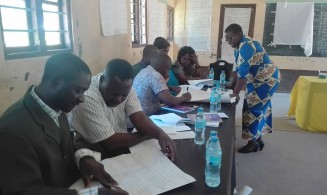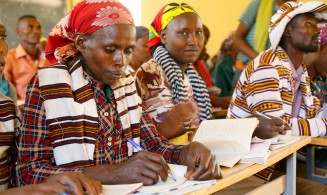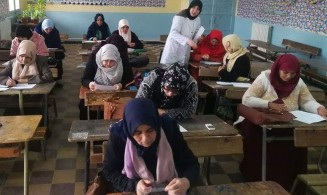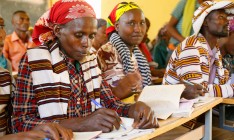

Strengthening family learning through community learning centres in Indonesia
family_literacy_indonesia.jpg

In Indonesia, more than 350,000 schools and non-formal education institutions, including community learning centres (CLCs), have implemented parenting programmes, extending to around 380 cities and municipalities across the country. Moreover, the government has trained over 1,600 family learning facilitators, and approximately 15 million parents have benefitted from the programmes.
These achievements are based on ‘Developing a curriculum framework for family learning in community learning centres (CLCs)’ strategy, which was developed by the Directorate General of Early Childhood Education and Community Education, Ministry of Education (MoE). The participation of Mr Yohan Rubiyantoro’, Policy Analyst of Non-formal Education at the Ministry of Education, in the UNESCO Institute for Lifelong Learning’s CONFINTEA Fellowship Programme was instrumental in finalizing the strategy.
The strategy aims to empower parents to actively engage in the education of their children by providing them with access to quality intergenerational learning programmes offered in CLCs throughout Indonesia. It was developed as a complement to the country’s National Medium-Term Development Plan and formed the blueprint for Indonesia’s Family Learning Development initiative.
Mr Rubiyantoro further completed two publications related to family learning as part of the strategy’s action plan and, upon his return from UIL, created and maintained the MoE’s website and social media accounts, focusing on nationally promoting family learning. Currently, many CLCs and schools in Indonesia benefit from the website, which was developed as an extension of the family learning programme and was declared the third-best website of the MoE.
Mr Rubiyantoro says that the CONFINTEA Fellowship Programme enabled him to transform knowledge into policy and practice for family education in Indonesia. ‘It was a very remarkable experience,’ he explained. ‘The most memorable moments were during the presentations and exchange with experts at UIL. The programme also benefited my career and increased my research capacities.’
The family learning programme is being further expanded in Indonesia. However, the geography of the country – including many remote areas and more than 6,000 inhabited islands – poses a real challenge. To respond to this situation, the MoE introduced online learning platforms in cooperation with universities and further education institutions, which also provide training for CLC tutors. During the COVID-19 crisis, the newly introduced online platforms offered a flexible and accessible method to continue providing family learning programmes.
As a follow up to CONFINTEA VI, UIL welcomed 38 fellows (19 men and 19 women, 31 of whom were government officials and seven NGO representatives) from 32 countries. For more information, visit https://uil.unesco.org/unesco/confintea-fellowships/list.







